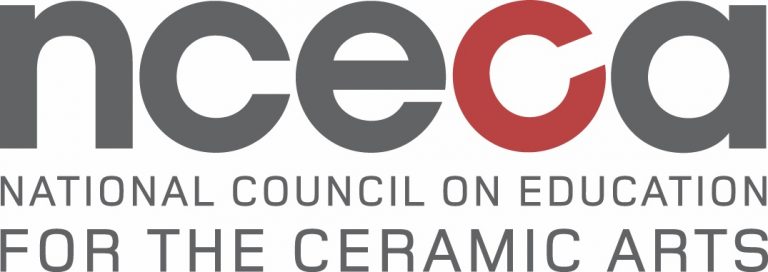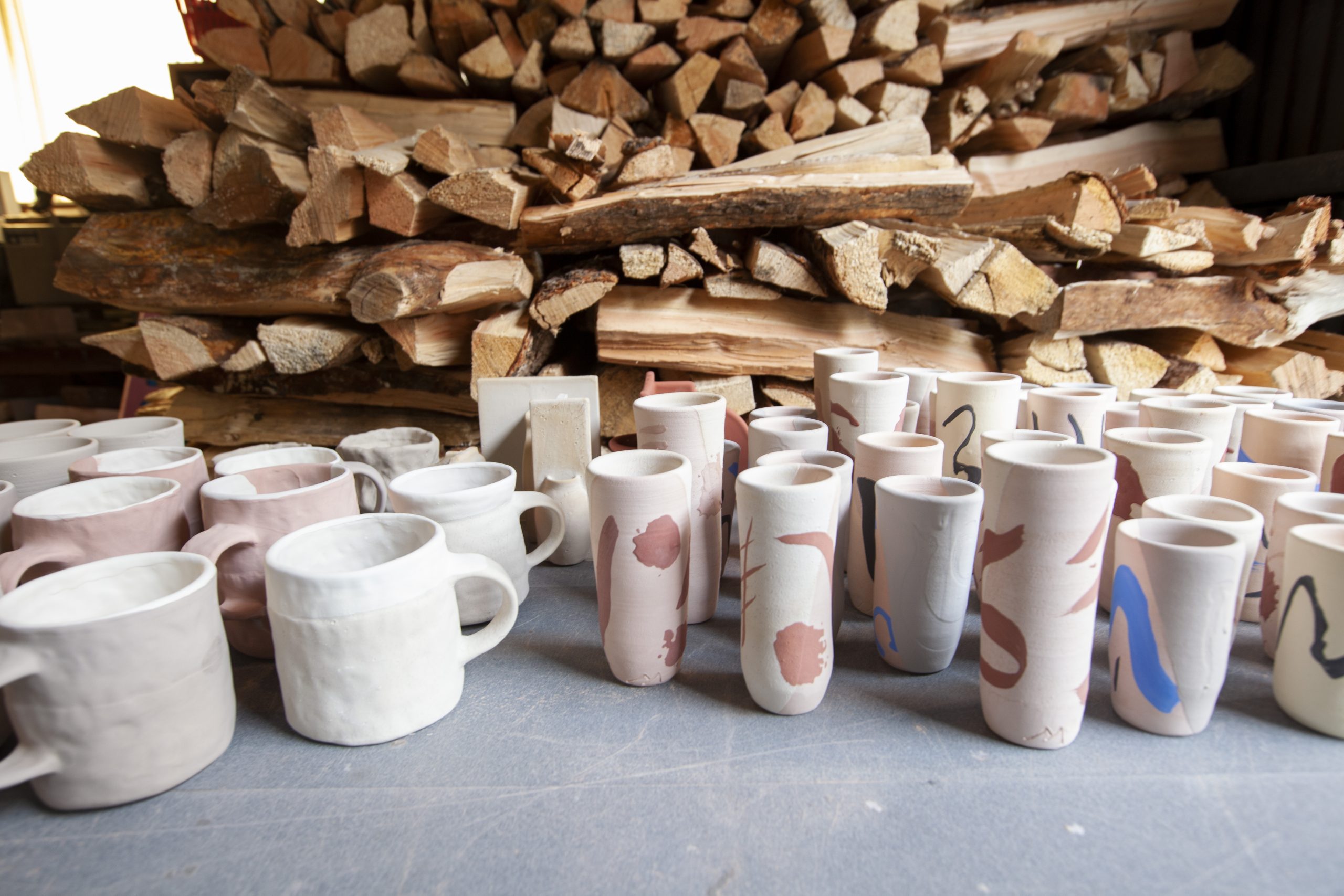Ceramics
Code: C0811-22
-
II
Level II
Students have a basic understanding of forming techniques, such as throwing and hand building. Students have taken one or two ceramics classes or workshops.
-
III
Level III
Students have significant experience with clay forming techniques, such as throwing, hand building and modeling. Students are comfortable with ceramics equipment, such as wheels, extruders and slab rollers. Students are self-starting with some formal training and have taken a minimum of three classes or workshops.
-
IV
Level IV
Students have advanced skills and knowledge of the ceramics field. Students are highly motivated, have a minimum of five years experience in the field and have a portfolio of their artwork. Typical students are academics and professional artists.
Active Hands, Active Mind: Cone 3 Pottery
Jul 25 - Aug 5, 2022
9AM-5PM
Concept
Activate the hands and stimulate the mind with a variety of throwing and hand-building techniques. Students explore the details of various pottery forms and discover new personal solutions. Demonstrations cover wheel-throwing and hand-building techniques, bisque mold systems, form-finding exercises and Cone 3 firing strategies. Participants must have wheel-throwing skills (beginning throwing techniques are not taught).
Media & Techniques
Pottery, wheel-throwing, hand-building, red earthenware, slips and glazes, electric and soda firing to cone 3
Supply ListFaculty

Matt Kelleher
Matt Kelleher is associate professor of ceramics at New York State College of Ceramics at Alfred University. He joined the faculty in 2015 after a decade of working as a studio potter in the mountains of western North Carolina. Matt has participated in residencies at Penland School of Crafts, Archie Bray Foundation, Shigaraki Ceramic Cultural Park, and Jingdezhen Ceramic Institute.

Matt Kelleher, Pitcher
Join Waitlist for Active Hands, Active Mind: Cone 3 Pottery
Thank you for your interest in the waitlist. When space in a workshop or program becomes available, registration will open on the website. Everyone on the waitlist will be emailed to alert them of the opening. This ensures that everyone has an equal opportunity to register for the workshop or program.
Ceramics
In 1966, American ceramicist Paul Soldner selected the site for what is now Anderson Ranch Arts Center, forming the foundation for a thriving ceramics program. Then and now, Anderson Ranch is a place where students exchange ideas and examine ceramic art and pottery techniques. It has always been a place where seminal moments of growth happen in an artist’s creative and critical thinking. Here, both beginning and emerging artists gain strong fundamental support, while established artists achieve new perspectives and advance their techniques.
The Ranch Ceramics team provides support, feedback and technical problem-solving, giving each artist the freedom to experiment and grow. Our primary focus is on personal advancement through a process of creative discovery.
The Soldner Ceramics Center makes up more than 10,000 square feet in three buildings with 3 studio spaces and 1 kiln yard; Soldner Studio, Long Studio, Sorenson Studio and Lyeth/Lyon Kiln Building. Soldner and Long studios are used for wheel-throwing, hand-building, or general ceramics creativity. Sorenson studio is equipped with five PotterBot 3d clay printers. The Lyeth/Lyon kiln building is equipped with gas, electric, soda and wood kilns for both oxidation and reduction firing at all temperature ranges. The Ranch offers three wood kilns including a gas/wood hybrid kiln, three gas reduction kilns, one soda kiln and eleven high-temperature electric kilns.

Anderson Ranch is happy to extend a tuition discount* in summer one- or two-week adult ceramics workshops** for NCECA members at the student membership level or above. Please email reg@
Workshop Details
Workshop Supplies
For general information about studio access, shipping, and more, please visit our info page.
If you have any questions regarding your supplies for your workshop, please contact Joanne Seongweon Lee, [email protected].
Lodging & Meals
Housing is limited and includes shared and private lodging options. Reservations will be managed on a first-come, first-served basis. The earlier you reserve housing, the better your chance of receiving your preferred option. Please note: Workshop costs do not include accommodations.
NEW: Tuition includes a welcome dinner and lunches. In our effort to foster a stronger sense of community and accessibility at Anderson Ranch, we include the welcome dinner and all lunches as part of the tuition for summer workshop students. Our hope is that this adjustment will encourage all students to come together to share meals and engage in meaningful conversations. The Ranch Café Meal Plan, which is included with Room and Board fees, strives to provide healthy, creative meals that will nourish your artistic creativity. Learn more.
We have established a Business Safety Plan with added layers of precaution that prioritize the health and safety of our staff, students, faculty and guests while continuing to provide you with the Anderson Ranch experience that you know and enjoy.

Scholarships, College Credit & Discounts
Making Art Accessible
Applications for scholarship support are encouraged. Specific scholarships are funded by Ranch supporters, either through endowed funds or special gifts.
Many colleges and universities offer college credit for workshops taken at Anderson Ranch. Discounts are available for students and teachers.
You Might Also Be Interested In

-
III
Level III
Students have significant experience with clay forming techniques, such as throwing, hand building and modeling. Students are comfortable with ceramics equipment, such as wheels, extruders and slab rollers. Students are self-starting with some formal training and have taken a minimum of three classes or workshops.
-
IV
Level IV
Students have advanced skills and knowledge of the ceramics field. Students are highly motivated, have a minimum of five years experience in the field and have a portfolio of their artwork. Typical students are academics and professional artists.
Jul 14 - 25, 2025
9AM-5PM
Korean Onggi: Coil, Paddle, Form, Ferment
Adam Field
Tuition $2,010
Code C0709-25
Adam Field shares the traditional Korean Onggi coil and paddle pottery techniques he learned during his Onggi apprenticeship with Onggi Master Kim Ill Maan. Participants learn and practice all steps of this ancient process including rolling and paddling large coils, wheel throwing and forming traditional Onggi vessels, glazing, firing, and even fermenting with guest fermentation professionals. Participants gain a historical perspective through the creation of the oldest continuously practiced pottery tradition. Generous discussions about aesthetics, materials, ceramic history, and studio workflow are certain to encourage individual discovery, growth, and development of fresh ideas. Participants gain skills, knowledge, and confidence to create and decorate historically informed functional pots in their own voice.

-
I
Level I
Students are new to ceramics and have no formal training.
-
II
Level II
Students have a basic understanding of forming techniques, such as throwing and hand building. Students have taken one or two ceramics classes or workshops.
Jul 14 - 25, 2025
9AM-5PM
Illuminated: Introduction to Clay 3D Printing and Digital Tools
Jolie Ngo
Tuition $2,010
Code C0711-25
This introductory course to 3D clay printing and digital tools prompts students to investigate the synergy between the handmade arts and technology with the goal of creating a table lamp design. The workshop goes through every step of the process, from preparing clay for successful prints, to designing forms in Rhinoceros 3D, to exploring best practices for operating clay and plastic printers. Students learn different ways of finishing surfaces including airbrush techniques, ultimately completing and wiring a clay printed table lamp that they can take home.

-
II
Level II
Students have a basic understanding of forming techniques, such as throwing and hand building. Students have taken one or two ceramics classes or workshops.
-
III
Level III
Students have significant experience with clay forming techniques, such as throwing, hand building and modeling. Students are comfortable with ceramics equipment, such as wheels, extruders and slab rollers. Students are self-starting with some formal training and have taken a minimum of three classes or workshops.
Jul 14 - 25, 2025
9AM-5PM
Clay in Color: Handbuilding with Pigmented Porcelain
Linda Lopez
Tuition $2,010
Code C0710-25
Dive into the possibilities of colored clay bodies in this fun and experimental hand building workshop. Students create harmonious blends of color by mixing stains in clay and then use these to create dynamic sculptures. Through a process of experimenting and testing, students explore abstraction, texture, and color. Demonstrations focus on construction techniques and different methods for using colored clay. Students share and compare our work, discussing visual perception, color, and abstract ceramics. Students build their own catalog of color clay tests and a series of sculptures.












